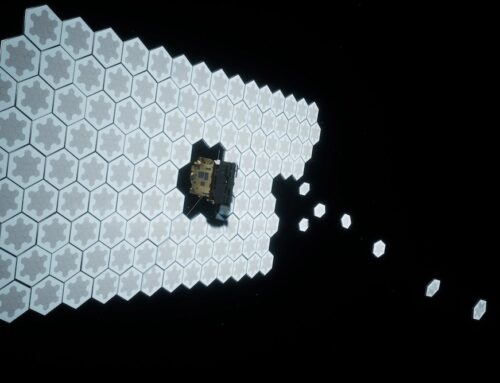Harrison Ford recalls first encounters with nature in Chicago during visit to receive envi
October 30, 2025

On a quiet day at a pond near his childhood home in Morton Grove, a teenage Harrison Ford went down to the water looking for frogs to hunt and rocks to collect. He was alone, but after a while, the air shifted with a new presence.
He looked up to see a red fox a few feet away. “Just sitting there, looking at me. And I looked at him, and he looked at me.”
“I left there knowing something about nature that I had not known before,” he said during a visit to the Field Museum on Wednesday. “And that was that I was a part of nature.”
The movie actor, best known for his roles as Han Solo in “Star Wars” and as Indiana Jones, and longtime environmental activist received the inaugural E.O. Wilson Legacy Award for Transformative Conservation Leadership, named after his late friend, the renowned naturalist and biologist Edward Osborne Wilson.
The pair met through their work with Conservation International, a nonprofit environmental organization that Ford has been involved in since 1991 and where he has served as vice chair of the board of directors for over 25 years. Wilson, who discovered over 325 species of ants, named one of them Pheidole harrisonfordi in honor of his friend.
The event was part of the E.O. Wilson Biodiversity Foundation‘s 9th annual Half-Earth Day celebration, hosted at the Field Museum this year, to promote discussion around a conservation initiative proposed by Wilson that advocates for protecting half of the Earth’s land and seas to preserve biodiversity and maintain ecological balance.
Paula Ehrlich, president and CEO of the foundation, said the award honors the work of those who courageously encourage and inform collective action to safeguard nature.
“Harrison Ford’s life is a testimony to the conviction that successful conservation efforts require not only scientific understanding, but also the ability to translate complex ecological concepts into compelling public narratives that inspire action and advance enduring conservation policy,” Ehrlich said. “He reminds us that our work to protect the Earth is a critical scientific, moral and spiritual duty, not only for its own sake, but for the future of all life.”

Ford has been an advocate for the environment and biodiversity for over three decades. It was his curiosity and subsequent realization as a frog-hunting teenager living in the suburbs that underpins his commitment to nature.
“Ed Wilson always said that every great naturalist, even every great scientist, begins as a bug collector. Like a little kid out in the field, turning over stones and seeing a bug,” said Wade Davis, a Canadian cultural anthropologist and ethnobotanist, who asked Ford during an onstage conversation: “How did you get the bug of loving nature?”
“Well, I grew up in Chicago,” Ford said, matter-of-factly, to hoots and hollers from the audience.
His family, he said, visited a farm almost every summer, where he and his brother would stay and spend their days working.
Ford was also a Boy Scout and, eventually, became his chapter’s assistant director of the nature department.
“Which meant I could collect snakes and turkeys and frogs and dig a hole in the ground, make a terrarium,” he recalled. “Those are my earliest memories of interaction with nature.”
Most of his weekends were spent in Chicago’s Lincoln Park Zoo, since his father — who was in the advertising business — had a client that sponsored Zoo Parade, a TV program in the 1950s featuring animals from the zoo.
“Marlin Perkins would often show me around himself,” Ford said, referring to the zoo’s then-director and the show’s host, who would later co-host another documentary wildlife program, Mutual of Omaha’s Wild Kingdom.

Now 83 years old, Ford has remained steadfast in his environmental activism and calling out those in power who refuse to act to protect the climate and nature.
“As soon as we can make alternative energy as inexpensive as fossil fuels, we will have a chance,” he told the Tribune. “Until then — we’re boned.”
In contrast with his usually calm and collected demeanor, Ford grew increasingly agitated as he decried climate denialism.
“It’s established science. It’s not a fiction, it’s not a con. It’s hard science, tested science,” he said. “So my hope and expectation is that people will see the light. They will change their behavior. They will elect to … office people who believe in science, who can use science, who do not denigrate science.”
Later, during his conversation with Davis, Ford acknowledged frustration: “I’m impatient with us.”
But he doesn’t feel hopeless.
“In every young person of intelligence and humanity that I meet, there’s another soldier that may be able to join the fight and help,” he told the Tribune.
RevContent Feed
Search
RECENT PRESS RELEASES
Related Post








